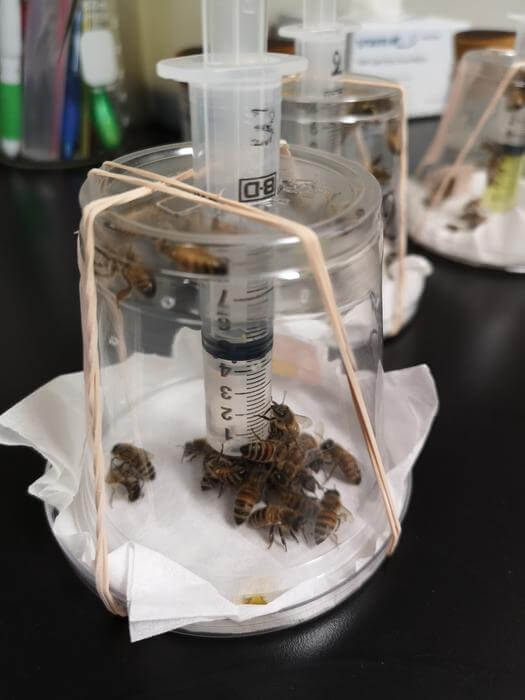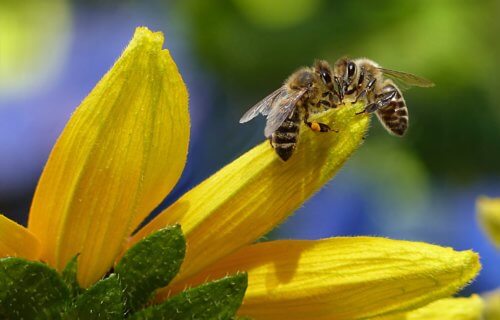MONCTON, New Brunswick — Pesticides aren’t just deadly to pests, they may be harming nature’s most important pollinators as well. Luckily, a new study finds there’s a natural remedy that may save the bees. Scientists find that ahiflower oil, an omega-3 rich oil, can effectively prevent toxic damage to pollinators like bees due to pesticide exposure.
“Pesticides are a major threat to insect populations and as insects are at the core of ecosystem richness and balance, any loss in insect biodiversity can lead to catastrophic outcome,” says PhD student Hichem Menail of the Université de Moncton in New Brunswick, Canada.
Imidacloprid, a neonicotinoid pesticide, is one of the world’s most commonly used insecticides. Neonicotinoids are a group of insecticides typically used across farms and urban landscapes. Outdoor use of imidacloprid was specifically banned by the European Union in 2018, along with two other major neonicotinoids. However, use within the United States and in other parts of the world is still high.
“Neonicotinoids are among the most toxic and the most harmful insecticides. They are used extensively and are very persistent in the environment. Thus, it is practically impossible to prevent honey bees from being exposed and eventually poisoned,” says Menail in a media release. “A more convenient strategy is to boost the immune system and the metabolism of honey bees to allow them to overcome this chemical intoxication.”

To test how an omega-3 rich oil measures up against long term exposure, Menail and his team fed three groups of bees a sucrose syrup that contained either the pesticide alone, the ahiflower oil alone, or both together. After 25 days of eating these diets, they measured the bees’ mitochondrial respiration. This type of respiration describes the set of metabolic reactions that need oxygen in order to happen within the mitochondria in order to successfully produce adenosine triphosphate (ATP).
“First, our results confirmed our hypothesis about the hampering effect of imidacloprid on mitochondrial respiration,” explains Menail. “What was exciting and somehow surprising is the immediate beneficial effect of ahiflower oil on mitochondrial respiration. Honey bees fed with imidacloprid and ahiflower oil simultaneously had some of their respiration rates recover to the same level than the controls.”

The findings are promising for keeping pollinator populations up and benefiting the ecosystem. Menail and his team’s work may soon translate to developing food supplements that reduce death in honey bees exposed to pesticides.
“We believe that this strategy is promising,” Menail concludes. “By improving their respiration through ahiflower oil supplementation, we believe that mitochondria can increase their ATP production and thus improve overall performance of honey bees, as well as their immune system.”
Menail’s findings were presented at the SEB Centenary Conference 2023.
You might also be interested in:
- Here’s how sunflowers could save bumblebees from extinction
- Sexy perfume from engineered plants could replace common pesticides, study explains
- Best Omega-3 Fish Oils for 2023: Top 5 Supplement Brands Most Recommended By Experts

